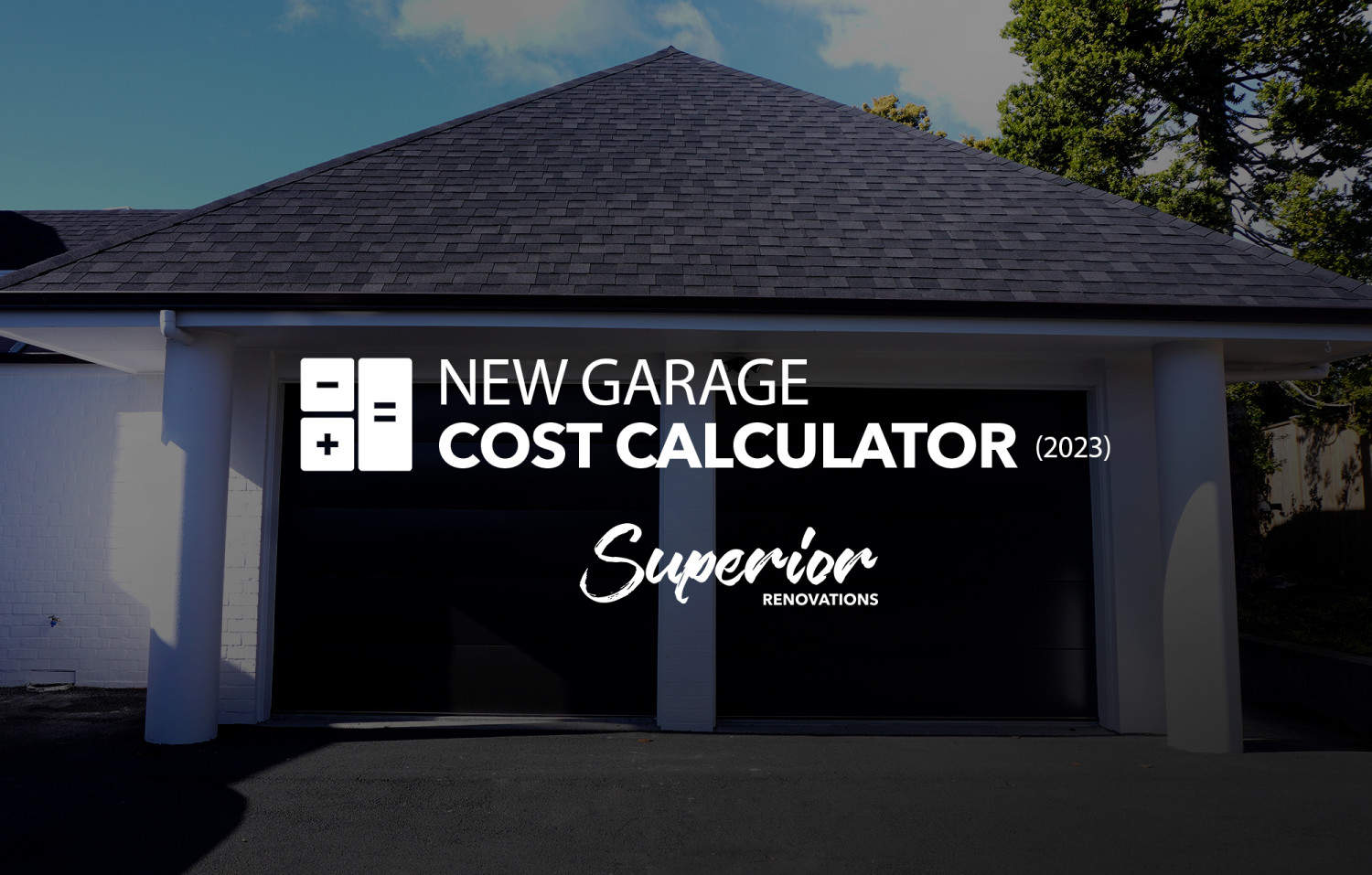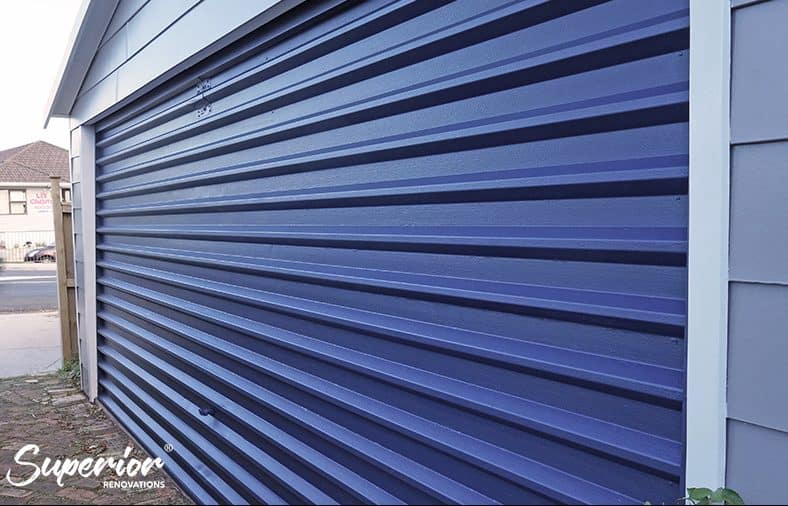
Cost to Build a New Garage Cost Calculator NZ Superior Renovations ®
In New Zealand, 92% of households have at least one vehicle according to One Roofs (2019) research so it’s not a surprise that most home buyers and renters are looking for property that has a garage. Does it actually add any value to the property? Not as much as people think but in short, it adds 2-3% to the sale price of the house – however it’s different for all locations (eg it will be perceived as more valuable in an area like Central Auckland, people are paying $50,000 to $75,000 just for a car park)
Jump Straight to New Garage Cost Calculator Tool

What Factors Determine the Cost of Building a Garage in New Zealand?
Building a garage is a fantastic way to add value to your home, providing additional storage space, protecting your vehicles, and even creating a workshop or hobby area. However, the cost can vary significantly based on several factors. Let’s dive into what influences the cost of building a garage in New Zealand.
1. The Size of the Garage
The size of your garage is the primary factor affecting the cost. Whether you’re building a single-car, double-car, or even a larger multi-car garage, the dimensions will significantly influence the overall price. A larger garage requires more materials and labor, naturally increasing the cost.
2. Excavation and Site Preparation
Before you can start building, you need to prepare the site. This may involve leveling the ground, clearing debris, or even dealing with difficult soil conditions. In New Zealand, where the terrain can vary widely, site preparation can be a substantial part of your budget.
3. Foundation
The foundation is crucial for the stability of your garage. The type of foundation you choose—whether a simple concrete slab or something more elaborate—will affect the cost. In areas with poor soil conditions, you might need a more robust foundation, which can increase expenses.
4. Walls for the Garage
The materials you choose for the walls also play a significant role in the overall cost. You can opt for timber framing, which is popular in New Zealand, or more expensive materials like concrete blocks or brick. Each has its own cost implications and benefits.
5. Exterior Material of the Garage
The exterior finish of your garage will impact both the cost and the aesthetic appeal. Options range from weatherboard cladding, which is common in New Zealand, to more modern materials like metal or vinyl siding. The choice of material will affect not only the price but also the maintenance required over time.
6. Roof Type for the Garage
The type of roof you select can vary in cost. A simple gable roof might be more affordable, while a more complex design like a hip roof could be pricier. The materials for the roof, such as metal, tiles, or asphalt shingles, will also influence the total cost.
7. Utilities
If you plan to include utilities in your garage, such as electricity, water, or even internet, this will add to the cost. Wiring for lights, outlets, and possibly plumbing for a sink or toilet requires professional installation and can increase your overall budget.
8. Flooring
The flooring of your garage is another important consideration. A standard concrete floor might be sufficient for most uses, but if you’re planning a workshop or hobby space, you might want to invest in more durable or specialized flooring options.
9. Additional Considerations and Costs
Other factors can influence the cost of your garage, such as insulation, windows, doors, and interior finishes. You might also need to consider the cost of permits and consents.
Legal Requirements and Consents in New Zealand
In New Zealand, building regulations are strict, and you must adhere to local council requirements. For example:
- Detached Garages: You generally need a building consent for detached garages over 10 square meters. Always check with your local council to ensure compliance.
- Attached Garages: Building consent is required for attached garages.
- Resource Consent: If your garage will serve as an additional dwelling or has specific local planning implications, you may also need resource consent. Consult with an architect or your local Auckland council to navigate these regulations effectively.
Return on Investment
Adding a garage to your property in New Zealand typically offers a return on investment of 60% to 80%. It’s a significant enhancement that not only adds functional space but also increases your property’s market value.
Safety Considerations
If you plan to use your garage for work involving flammable materials, be aware of the fire risks. Detached garages are generally safer in this regard since any potential fire is less likely to spread to your home.
Building a garage is a substantial investment, but with careful planning and consideration of these factors, you can create a valuable addition to your home that meets your needs and complies with New Zealand’s building regulations.
Building Consent Requirements
When considering building a new garage in New Zealand, it’s essential to understand the consent requirements to ensure your project complies with local regulations.
General Consent Needs: Building consents are required for most construction work to ensure compliance with the Building Code. This includes garages, especially when they involve significant structural work, plumbing, or drainage.
Detached Garages:
- Small Structures (10 to 30 square meters): You may not need a building consent for small, single-storey detached buildings such as garages, provided they are between 10 and 30 square meters and use lightweight materials like timber or steel. However, these buildings must not include sanitary facilities, cooking areas, or be used for sleeping accommodations.
- Position and Height: The garage must be located more than its height away from property boundaries. If it meets these criteria and other technical requirements, it can be built without a consent.
Attached Garages:
- Consent Required: For attached garages, a building consent is generally necessary regardless of size, as it involves altering the primary structure of the home.
Specific Considerations
- Foundation and Structural Work: Any significant foundation work or structural modifications will necessitate a building consent.
- Utilities: If your garage includes plumbing, electrical systems, or drainage installation, a building consent is necessary.
- Safety and Compliance: Ensuring your build meets the Building Code’s safety, durability, and performance standards is crucial. Consulting with a licensed building practitioner (LBP) or an architect can help you navigate these requirements.
Resource Consent
Depending on the specifics of your garage project and local zoning regulations, a resource consent may also be required. This is particularly relevant if:
- The garage will be used as an additional dwelling.
- The build impacts local environmental or community planning regulations.
Penalties for Non-Compliance
Conducting building work without the required consents can result in substantial fines. You could face fines up to $200,000 and additional daily fines if the offense continues. Councils also have the authority to issue notices to fix and can remove dangerous or unsanitary work.
For more detailed guidance, it’s always best to check directly with your local council or refer to resources provided by Building.govt.nz and the Auckland Council. This ensures you are up-to-date with the latest requirements and exemptions specific to your area.
Cost to build a garage calculator nz (detached garage)
This New Garage Cost Calculator (Updated on August 2020 to reflect market prices of product and labour) is designed only for you to get an indication of what you can expect to invest based on the provided information – but there are more factors that could impact on the cost of the project – see full article on cost of a new garage here: https://superiorrenovations.co.nz/new-garage-cost/
— Please note —
For every project there can be so many cost factors which will affect the accuracy of this calculator. Cost are calculated by averages just to give you an indication. Always seek professional advice and quotations from a project manager if you require an accurate estimate. Never use this calculator as a foundation for your allowances or finances – only for research purposes. Rates & material costs vary from region to region as well.
New Garage Cost Calculator Tool
Once you’ve generated an estimate and completed the form – you would be emailed a rough estimate – we will then follow up with you to discuss your estimate and answer any questions you may have.
Where to send the results?
Please fill in your details below and your results will be sent straight to your email inbox. (double check your junk mail folder)
To sum up
Is the New Garage Cost Calculator (NZ) free to use?
Yes, it was developed by Superior Renovations for the purpose of providing costings for a new garage to visitors, and it this was partly triggered by popular request.
What is the average cost of a standard of a New Garage?
The average cost can range from $40,000 to $60,000 dependant on choice of materials and size.
Does building a new garage require building consent?
Building a new garage in most case does not require building consent but it depends on the sign of the garage and if it's attached to the existing property
Please note: Whilst all information is considered to be true and correct at the date of publication, changes in circumstances after the time of publication may impact on the accuracy of the information. The information may change without notice and Superior Renovations is not in any way liabe for the accuracy of any information printed and stored or in any way interpreted and used by a user.



0 comments
Write a comment